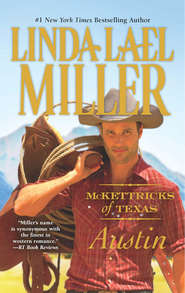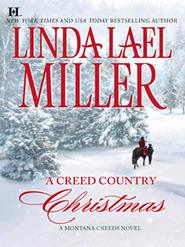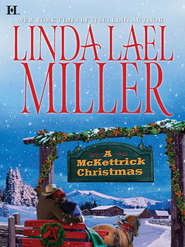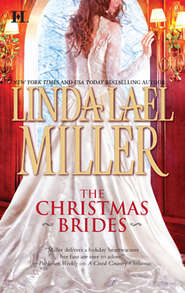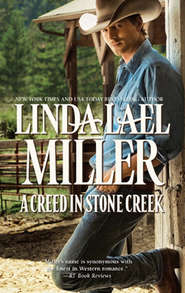По всем вопросам обращайтесь на: info@litportal.ru
(©) 2003-2024.
✖
Here and Then
Автор
Год написания книги
2018
Настройки чтения
Размер шрифта
Высота строк
Поля
At thirty, Rue was an accomplished photojournalist. She’d dodged bullets and bombs in Belfast, photographed and later written about the massacre in Tiananmen Square, covered the invasion of Panama, nearly been taken captive in Baghdad. And while all of those experiences had shaken her and some had left her physically ill for days afterward, none had frightened her so profoundly as Elisabeth’s disappearance.
The police and Elisabeth’s father believed Elisabeth had simply fled the area after her divorce, that she was lying on a beach somewhere, sipping exotic tropical drinks and letting the sun bake away her grief. But because she knew her cousin, because of the letters and phone messages that had been waiting when she returned from an assignment in Moscow, Rue took a much darker view of the situation.
Elisabeth was wandering somewhere, if she was alive at all, perhaps not even remembering who she was. Rue wouldn’t allow herself to dwell on all the other possibilities, because they didn’t bear thinking about.
Downstairs in the big kitchen, she brewed a cup of instant coffee in Elisabeth’s microwave and sat down at the big, oak table in the breakfast nook to go over the tattered collection of facts one more time. Before her were her cousin’s letters, thoughtfully written, with no indications of undue stress in the familiar, flowing hand.
With a sigh, Rue pushed away her coffee and rested her chin in one palm. Elisabeth had come to the house the two cousins had inherited to get a new perspective on her life. She’d planned to make her home outside the little Washington town of Pine River and teach at the local elementary school in the fall. The two old ladies across the road, Cecily and Roberta Buzbee, had seen Elisabeth on several occasions. It had been Miss Cecily who had called an ambulance after finding Elisabeth unconscious in the upstairs hallway. Rue’s cousin had been rushed to the hospital, where she’d stayed a relatively short time, and soon after that, she’d vanished.
Twilight was falling over the orchard behind the house, the leaves thinning on the gray-brown branches because it was late October. Rue watched as a single star winked into view in the purple sky. Oh, Bethie, she thought, as a collage of pictures formed in her mind…an image of a fourteen-year-old Elisabeth predominated—Bethie, looking down at Rue from the door of the hayloft in the rickety old barn. “Don’t worry,” the woman-child had called cheerfully on that long-ago day when Rue had first arrived, bewildered and angry, to take sanctuary under Aunt Verity’s wing. “This is a good place and you’ll be happy here.” Rue saw herself and Bethie fishing and wading in the creek near the old covered bridge and reading dog-eared library books in the highest branches of the maple tree that shaded the back door. And listening to Verity’s wonderful stories in front of the parlor fire, chins resting on their updrawn knees, arms wrapped around agile young legs clad in blue jeans.
The jangle of the telephone brought Rue out of her reflections, and she muttered to herself as she made her way across the room to pick up the extension on the wall next to the sink. “Hello,” she snapped, resentful because she’d felt closer to Elisabeth for those few moments and the caller had scattered her memories like a flock of colorful birds.
“Hello, Claridge,” a wry male voice replied. “Didn’t they cover telephone technique where you went to school?”
Rue ignored the question and shoved the splayed fingers of one hand through her hair, pulling her scalp tight over her forehead.
“Hi, Wilson,” she said, Jeff’s boyish face forming on the screen of her mind. She’d been dating the guy for three years, on and off, but her heart never gave that funny little thump she’d read about when she saw his face or heard his voice. She wondered if that meant anything significant.
“Find out anything about your cousin yet?”
Rue leaned against the counter, feeling unaccountably weary. “No,” she said. “I talked to the police first thing, and they agree with Uncle Marcus that she’s probably hiding out somewhere, licking her wounds.”
“You don’t think so?”
Unconsciously, Rue shook her head. “No way. Bethie would never just vanish without telling anyone where she was going…she’s the most considerate person I know.” Her gaze strayed to the letters spread out on the kitchen table, unnervingly calm accounts of journeys to another point in time. Rue shook her head again, denying that such a thing could be possible.
“I could fly out and help you,” Jeff offered, and Rue’s practical heart softened a little.
“That won’t be necessary,” she said, twisting one finger in the phone cord and frowning. Finding Elisabeth was going to take all her concentration and strength of will, she told herself. The truth was, she didn’t want Jeff getting in the way.
Her friend sighed, somewhat dramatically. “So be it, Claridge. If you decide I have any earthly use, give me a call, will you?”
Rue laughed. “What?” she countered. “No violin music?” In the next instant, she remembered that Elisabeth was missing, and the smile faded from her face. “Thanks for offering, Jeff,” she said seriously. “I’ll call if there’s anything you can do to help.”
After that, there didn’t seem to be much to say, and that was another element of the relationship Rue found troubling. It would have been a tremendous relief to tell someone she was worried and scared, to say Elisabeth was more like a sister to her than a cousin, maybe even to cry on a sympathetic shoulder. But Rue couldn’t let down her guard that far, not with Jeff. She often got the feeling that he was just waiting for her to show weakness or to fall on her face.
The call ended, and Rue, wearing jeans and a sweatshirt, put on a jacket and went out to the shed for an armload of the aged applewood that had been cut and stacked several years before. Because Rue and Elisabeth had so rarely visited the house they’d inherited, the supply had hardly been diminished.
As she came through the back door, the necklace caught her eye, seeming to twinkle and wink from its place on the kitchen table. Rue’s brow crimped thoughtfully as she made her way into the parlor and set the fragrant wood down on the hearth.
After moving aside the screen, she laid twigs in the grate over a small log of compressed sawdust and wax. When the blaze had kindled properly, she added pieces of seasoned wood. Soon, a lovely, cheerful fire was crackling away behind the screen.
Rue adjusted the damper and rose, dusting her hands off on the legs of her jeans. She was tired and distraught, and suddenly she couldn’t keep her fears at bay any longer. She’d been a reporter for nine eventful years, and she knew only too well the terrible things that could have happened to Elisabeth.
She went back to the kitchen and, without knowing exactly why, reached for the necklace and put it on, even before taking off her jacket. Then, feeling chilled, she returned to the parlor to stand close to the fire.
Rue was fighting back tears of frustration and fear, her forehead touching the mantelpiece, when she heard the distant tinkling of piano keys. She was alone in the house, and she was certain no radio or TV was playing….
Her green eyes widened when she looked into the ornately framed mirror above the fireplace, and her throat tightened: The room reflected there was furnished differently, and was lit with the soft glow of lantern light. Rue caught a glimpse of a plain woman in long skirts running a cloth over the keys of a piano before the vision faded and the room was ordinary again.
Turning slowly, Rue rubbed her eyes with a thumb and forefinger. She couldn’t help thinking of Elisabeth’s letters describing a world like the one she’d just seen, for a fraction of a second, in the parlor mirror.
“You need a vacation,” Rue said, glancing back over her shoulder at her image in the glass. “You’re hallucinating.”
Nonetheless, she made herself another cup of instant coffee, gathered up the letters and went to sit cross-legged on the hooked rug in front of the fireplace. Once again, she read and analyzed every word, looking for some clue, anything that would tell her where to begin the search for her cousin.
Thing was, Rue thought, Bethie sounded eminently sane in those letters, despite the fact that she talked about stepping over a threshold into another time in history. Her descriptions of the era were remarkably authentic; she probably would have had to have done days or weeks of research to know the things she did. But the words seemed fluent and easy, as though they’d flowed from her pen.
Finally, no closer to finding Elisabeth than she had been before, Rue set the sheets of writing paper aside, banked the fire and climbed the front stairway to the second floor. She would sleep in the main bedroom—many of Elisabeth’s things were still there—and maybe by some subconscious, instinctive process, she would get a glimmer of guidance concerning her cousin’s whereabouts.
As it was, she didn’t have the first idea where to start.
She showered, brushed her teeth, put on a nightshirt and went to bed. Although she had taken the necklace off when she undressed, she put it back on again before climbing beneath the covers.
The sheets were cold, and Rue burrowed down deep, shivering. If it hadn’t been for the circumstances, she would have been glad to be back in this old house, where all the memories were good ones. Like Ribbon Creek, the Montana ranch she’d inherited from her mother’s parents, Aunt Verity’s house was a place to hole up when there was an important story to write or a decision to work out. She’d always loved the sweet, shivery sensation that the old Victorian monstrosity was haunted by amicable ghosts.
As her body began to warm the crisp, icy sheets, Rue hoped those benevolent apparitions were hanging around now, willing to lend a hand. “Please,” she whispered, “show me how to find Elisabeth. She’s my cousin and the closest thing I ever had to a sister and my very best friend, all rolled into one—and I think she’s in terrible trouble.”
After that, Rue tossed and turned for a while, then fell into a restless sleep marred by frightening dreams. One of them was so horrible that it sent her hurtling toward the surface of consciousness, and when she broke through into the morning light, she was breathing in gasping sobs and there were tears on her face.
And she could clearly hear a woman’s voice singing, “Shall We Gather at the River?”
Her heart thundering against her chest, Rue flung back the covers and bounded out of bed, following the sound into the hallway, where she looked wildly in one direction, then the other. The voice seemed to be rising through the floorboards and yet, at the same time, it came from beyond the sealed door of the outside wall.
Rue put her hands against the wooden panel, remembering Elisabeth’s letters. There was a room on the other side, Bethie had written, a solid place with floors and walls and a private stairway leading into the kitchen.
“Who’s there?” Rue called, and the singing immediately stopped, replaced by a sort of stunned stillness. She ran along the hallway, peering into each of the three bedrooms, then hurried down the back stairs and searched the kitchen, the utility room, the dining room, the bathroom and both parlors. There was no one else in the house, and none of the locks on the windows or doors had been disturbed.
Frustrated, Rue stormed over to the piano on which she and Elisabeth had played endless renditions of “Heart and Soul,” threw up the cover and hammered out the first few bars of “Shall We Gather at the River?” in challenge.
“Come on!” she shouted over the thundering chords.
“Show yourself, damn it! Who are you? What are you?”
The answer was the slamming of a door far in the distance.
Rue left the piano and bounded back up the stairs, because the sound had come from that direction. Reaching the sealed door, she grabbed the knob and rattled the panel hard on its hinges, and surprise rushed through her like an electrical shock when it gave way.
Muttering an exclamation, Rue peered through the opening at the charred ruins of a fire. A trembling began in the cores of her knees as she looked at blackened timbers that shouldn’t have been there.
It was a moment before she could gather her wits enough to step back from the door, leaving it agape, and dash wildly down the front stairs. She went hurtling out through the front door and plunged around to the side, only to see the screened sun porch just where it had always been, with no sign of the burned section.
Barely able to breathe, Rue circled the house once, then raced back inside and up the stairs. The door was still open, and beyond it lay another time or another dimension.
“Elisabeth!” Rue shouted, gripping the sooty doorjamb and staring down through the ruins.
A little girl in a pinafore and old-fashioned, pinchy black shoes appeared in the overgrown grass, shading her eyes with a small, grubby hand as she looked up at Rue. “You a witch like her?” the child called, her tone cordial and unruffled.






